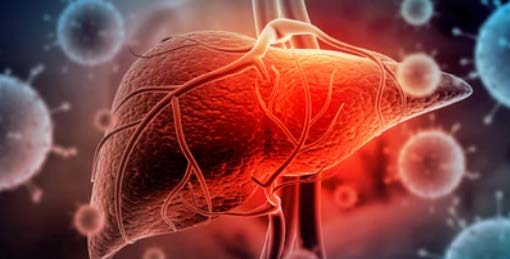
Did you know that there are 400 million people worldwide are affected by viral hepatitis and every year?
Hepatitis is inflammation of the liver. Inflammation is swelling that happens when tissues of the body are injured or infected. It can damage your liver. This swelling and damage can affect how well your liver functions. It can be an acute (short-term) infection or a chronic (long-term) infection.
Your liver is located in the right upper area of your abdomen. It performs many critical functions that affect metabolism throughout your body, including:
- bile production, which is essential to digestion
- filtering of toxins from your body
- excretion of bilirubin (a product of broken-down red blood cells), cholesterol, hormones, and drugs
- breakdown of carbohydrates, fats, and proteins
- activation of enzymes, which are specialized proteins essential to body functions
- storage of glycogen (a form of sugar), minerals, and vitamins (A, D, E, and K)
- synthesis of blood proteins, such as albumin
- synthesis of clotting factors
The most common types include hepatitis A virus (HAV), hepatitis B virus (HBV), and hepatitis C virus (HCV).
The 5 types of viral hepatitis
Viral infections of the liver that are classified as hepatitis include A, B, C, D, and E. A different virus is responsible for each type.
Hepatitis A is always an acute, short-term disease, while hepatitis B, C, and D are most likely to become ongoing and chronic. This type of hepatitis is most commonly transmitted by consuming food or water contaminated by feces from an infected person.
Hepatitis B is transmitted through contact with infectious body fluids, such as blood, vaginal secretions, or semen, containing the hepatitis B virus (HBV). Injection drug use, having sex with an infected partner, or sharing razors with an infected person increase your risk.
Hepatitis C comes from the hepatitis C virus (HCV) and is transmitted through direct contact with infected body fluids, typically through injection drug use and sexual contact.
Hepatitis D: Also called delta hepatitis and is caused by the hepatitis D virus (HDV). HDV is contracted through direct contact with infected blood. This is a rare form of hepatitis that only occurs in conjunction with hepatitis B infection. The hepatitis D virus can’t multiply without the presence of hepatitis B.
Hepatitis E is a waterborne disease caused by the hepatitis E virus (HEV). HEV is mainly found in areas with poor sanitation and typically results from ingesting fecal matter that contaminates the water supply. This disease is uncommon in the United States.
Common symptoms of hepatitis
If you have infectious forms of hepatitis that are chronic, like hepatitis B and C, you may not have symptoms in the beginning. Symptoms may not occur until the damage affects liver function.
Signs and symptoms of acute hepatitis appear quickly. They include:
- fatigue
- flu-like symptoms
- dark urine
- pale stool
- abdominal pain
- loss of appetite
- unexplained weight loss
- yellow skin and eyes, which may be signs of jaundice
Chronic hepatitis develops slowly, so these signs and symptoms may be too subtle to notice.
If you’d like to learn more about hepatitis and it’s effects, speak with your healthcare provider to find out if you need to be tested or if you need to be vaccinated against HAV or HBV.
If you are experiencing any of these symptoms, contact your healthcare provider.
If you don’t have a healthcare provider, contact 945.0777, WhatsApp your questions to 516.0777 or visit www.westbaypharmacy.com for more information.


